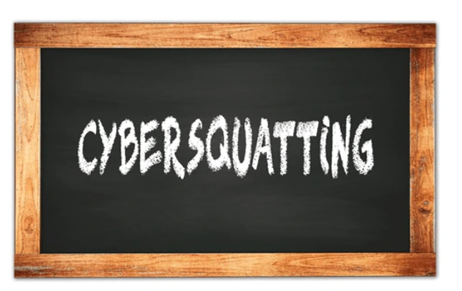Artificial intelligence has a wide range of effects, including on intellectual property law. At best…
The Question of Internet Jurisdiction
With the explosion of Internet and domain names, various disputes have occurred relating to many cyber-crimes and infringement of Trademark laws over domain names[1], and in order to seek justice before the Court of Law, dispute regarding jurisdiction arise owing to Internet having a multi-jurisdictional character.
The issue of jurisdiction has been the most debated and has been a focal point of the whole globe. In absence of a specific legal framework for cyberspace, much reliance is placed on judicial pronouncements of various countries that have developed the concept of ‘Internet Jurisdiction’.
International Shoe Co. V. Washington.[2] was among the first cases that introduced ‘Minimum Contact Test’, which further became the basis of determining Internet jurisdiction globally. In this case, International Shoe did not own any property/ permanent location in Washington, however, the plaintiff earned about $30,000 annually from customers in Washington. The state enacted a tax on companies doing business there that functioned as a mandatory contribution to its Unemployment Compensation Fund, which was stated to have been applied to the Plaintiff. US court of law held that the court can exercise its jurisdiction over non-resident defendant if certain ‘minimum contacts’ with forum state exist such that maintenance of the suit does not offend traditional notions of fair play and substantial justice.’ This theory was further limited to ‘purposeful availment’ of the defendant to the forum state.[3] The forum court may exercise its jurisdiction over a non-resident defendant/ defendants not physically present where an alleged injury arises out of or relates to actions by the Defendant himself that are ‘purposefully directed’ towards residents of the forum state. It was held that ‘purposeful availment’ would not result from ‘random’ or ‘fortuitous’ contacts by the Defendant in the forum state.[4]
However, a proper analysis of nature and quality of commercial activities of a website in terms of determining the jurisdiction was considered in Zippo Manufacturing Co. v. Zippo Dot Com, Inc.[5], which introduced ‘sliding scale analyses’ based on passive, active, and interactive websites. Court observed that mere passive websites do not form personal jurisdiction but those websites that enable parties of forum state to enter into contracts contemplating business with the forum state, may confer personal jurisdiction.
Further, jurisdiction on the effect of online interaction in the forum state was evolved by the Supreme Court in Calder v. Jones.[6] The effect test is applied in cases with insufficient interactivity or minimum contacts but where an action is targeted at a particular forum. In the Internet context, the effect test can be used to examine the exact nature of a Defendant’s Internet activities to determine whether it’s out-of-state actions were directed at parties or entities within the forum state. Further in Calder v. Jones, it was held that “purposeful direction requires (a) an intentional action that was (b) expressly aimed at the forum state, with (c) knowledge that the brunt of the injury would be felt in the forum state. If a court finds that a Defendant’s actions meet the standard of purposeful direction, personal jurisdiction may be asserted based on Internet activities that do not meet the requisite level of interactivity or minimum contacts needed for other tests of personal jurisdiction in Internet cases.”
Although these tests are referred by many courts of law across the world, Indian courts too have considered these theories for determining Internet Jurisdiction keeping in mind the fundamental provision for determining jurisdiction under section 20 of CPC and section 134[7] of Trade Mark Act considering domain name to be of nature of Intellectual Property.[8]
The first case to ponder over the Internet jurisdiction was Casio India Co. V Ashita Tele Systems Pvt. Ltd[9], where the court passed an injunction against the Defendant from using the website www.casioindia.com because of the fact that the website of Defendant is accessible in Delhi, which is sufficient to invoke the territorial jurisdiction of this Court. The High Court of Delhi held that the mere ability to access the website gave the court territorial jurisdiction to decide on the matter at hand. In 2007, the Delhi High Court reiterated the US courts holdings that, where the website is an interactive one, having target audience in another place, the court of those places has the jurisdiction of dispute arising from that website activities, irrespective of the place of defendants.[10]
Indian Position on this issue was made quite clear by the Delhi High Court in the case of Banyan Tree Holding (P) Limited v. A. Murali Krishna Reddy and Anr[11]. The most interesting fact of the case was that both the parties to the case were not situated within the territorial jurisdiction of the court but the websites of both the parties were accessible in Delhi. The court’s view changed from the Casio case and observed that mere accessibility of a website in Delhi is not sufficient to provoke jurisdiction by the Delhi Court. It reiterated US case laws and held that ‘The plaintiff has to show Defendant’s ‘purposeful availment’ directed towards the forum state, indicating that the use of website was with the intent of commercial transaction with the site user which leads to a damage or injury to the plaintiff.’ The court, also concluded the law of determining jurisdiction over internet on following conditions:
- Commercial transaction must have taken place due to the website.
- The defendant must have specifically targeted the forum state.
- Some injury must have resulted to the plaintiff due to the actions of the defendant.
- The plaintiff must have a presence in the forum state, and not merely the possibility of forum state.
The High Court of Delhi cleared the position of determining Internet jurisdiction in World Wrestling Entertainment, Inc. vs. M/s. Reshma Collection &Ors[12], where it held that mere accessibility of website in a forum state which ‘solicits’ its business, through which Defendent’sgoods and services are sold, is enough to raise cause of action and in determining the personal jurisdiction in Delhi.[13] The same was reiterated in Choice Hotels International Inc. v. M. Sanjay Kumar and Ors[14] by the single judge bench in the High Court of Delhi.
CONCLUSION
The issue of Internet jurisdiction has been challenging because of the involvement multiple locations. However, Indian Courts have definitely welcomed the Internet jurisdiction with a broad perspective by referring to various case laws globally. Through analysis of plethora of case laws, we can observe that Indian Courts have very well merged the fundamental laws of jurisdiction, i.e. section 19 and 20 of CPC, in determining the Internet jurisdiction. It can also be noted that mere presence of a website is sufficient to invoke jurisdiction even though the website has been used only to solicit businesses at a particular place, thus, mostly recognizing the effect test as laid out by the US court in Calder case. However, the practice of following only precedence on case laws, without having any specific guidelines or laws will definitely make these theories of determining jurisdiction vulnerable.
Sources
[1] M/s Satyam Infoway Ltd vs. Sifynet Solutions Pvt. Ltd, (2004) 6 SCC 145; Supreme Court Held that Domain names are subject to the legal norms applicable to other intellectual properties, such as Trademarks; Yahoo Inc. v. Akash Arora, 1999 PTC 201: Supreme Court held that general Trademark law to be applied to internet in cases of Domain Name. [In cases of Domain Name, if Infringement takes places it shall be treated as if Trademark Infringement and thus, the remedies granted under trademark infringement/passing off shall be granted]
[2] 326 U.S. 310 (1945)
[3] Asahi Metal Industry Co. v. Superior Court, 480 U.S. 102 (1987)
[4] Burger King Corp v. Rudzewicz
[5] 952 F. Supp. 1119 (W.D. Pa. 1997)
[6] 465 U.S. 783 (1984)
[7] Section 134, Trade Marks Act, 1999; provides statutory provisions for instituting suit against passing off or infringement
[8]Satyam Infoway Ltd. v. Sifnet Solutions Pvt. Ltd., AIR 2004 SC 3540; Tata Sons Ltd. &Anr. vs Arno Palmen&Anr; 199(2013)DLT437
[9] 2003 (27) PTC 265 (Del)
[10] Independent News Service Pvt. Limited v. India Broadcast Live Llc And Ors; 2007 (35) PTC 177 (Del)
[11] CS (OS) No. 894/2008
[12] 2014 (60) PTC 452 (Del)
[13] World Wrestling Entertainment, Inc. vs. M/s. Reshma Collection &Ors; “that it “carries on business” in Delhi because, according to it, its programmes are broadcast in Delhi; its merchandise and books are available for sale in Delhi; and its goods and services are sold to customers in Delhi through its website which can be accessed in Delhi over the internet.” (para 12).
[14] MANU/DE/0443/2015



